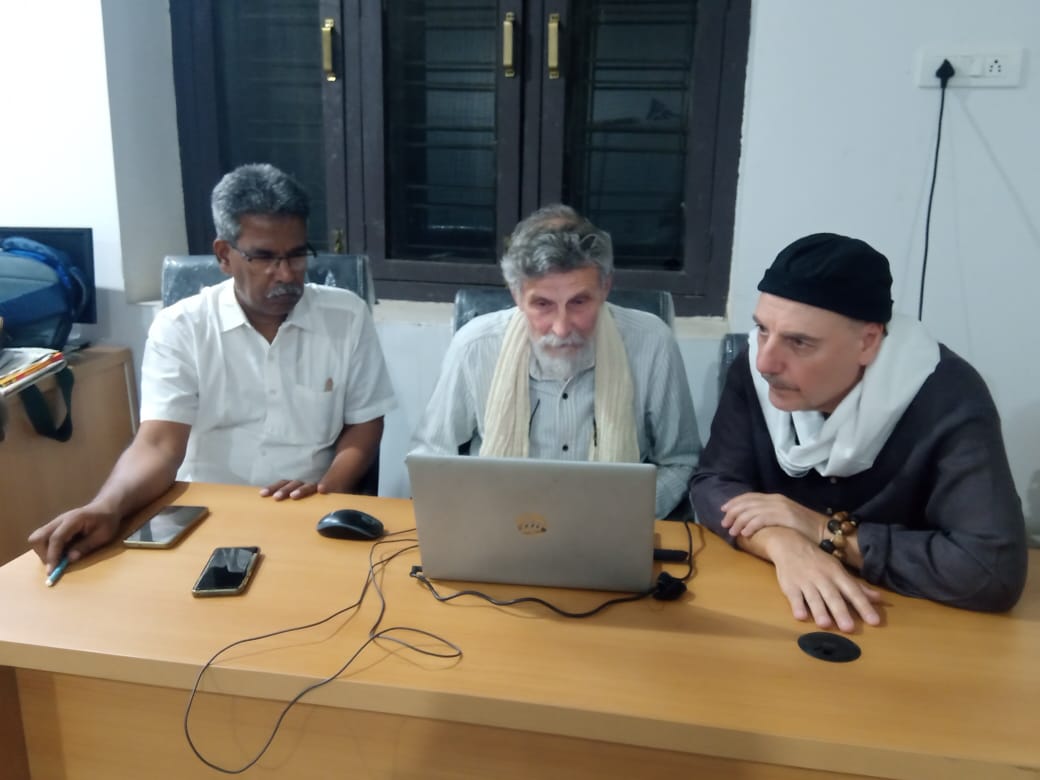Fundamental Principles of Gandhi
Three precautions or
preconditions are suggested to understand the principles of Gandhi.
( i ) Erase the image of
Gandhi as Mahatma from your mind and treat him as a thinker
cum activist.
(ii) Keep aside your
bias, if you have any against him or his thoughts. Be neutral and
objective.
(iii)Forget the
selective quotes to judge his whole personality or ideas. Quotes are highly
contextual.
There are several
approaches to understand Gandhi. a. Historical approach with main focus on historical
actions in South Africa and mostly in Indian freedom struggle – struggle of
nonviolent actions. b. Western approach basically seeing him as a political
activist as the one who fought against State and forces of colonialism c.Gandhi
in the context of Liberal Capitalism and Marxism.
We will not discuss all
these aspects but focus upon his fundamental principles that guided his life,
thought, and action. It is basically an approach to understand Gandhi
in the ethical sense. Through analyzing some of his selected writings we
try to understand the Fundamental principles or core of Gandhian Thought
(1) “Morality is the
basis of things and truth is the substance of all morality”
(An Autobiography or The Story of My Experiments with Truth) This is
perhaps the most complicated, complex, and profound proposition of Gandhi. Ethics and ontology i.e. nature of being
is related to each other. His
approach is moral and his views on social, political or economic questions stem
from a moral point of view.
It is difficult to
follow Gandhian principles because our approach is generally utilitarian in
nature and we see how we are going to benefit from it. We hardly take a moral
position. Moral position leads to nonviolence. It is a difficult path and needs
lot of courage and conviction
(2) “Life is an undivided whole. It cannot be compartmentalized in social, political, economic, religious, and so on.”
We have divided our life
into three categories viz. i. private, ii. personal and iii. professional
or public.
Why are we so unhappy
when we have all the material facilities? The reason; we are divided from
within. Gandhi’s principles call us to remain united. There should be unity of
thought, speech, and action. This unity should be extended to private, personal
and public life.
3. The question of speed
“There is more in life than increasing its speed”.
Speed as a marker of
civilization or being civilized.
He offered the critique
of a culture of high speed and criticized modern or industrial civilization on
this ground in his seminal text Hind Swaraj written in 1909. He, on the
other hand, invites us to see the “beauty of slowness”
(4) The mode of action
and our goal “As the means so the end” or “the way is the goal” The
process is more important than the outcome. It was Machiavelli who
said “End justify the means” The end does not justify the means. The purity of
means is important. Only means are in our hands or control. How did India
achieve freedom? It was predominantly nonviolent. Still we are maintaining
democratic culture with many limitations.
(5) In the animate world
there exists a law called the law of love or force of love. It is cohesive in
nature. He compares it with the law of gravitation, the force of gravitation “The law will work, just as the law of gravitation will work
whether we accept it or not.”
For the animate world,
Nonviolence is another name of this law. He wanted it to extend to different
fields, social, political, economic realms and even at the
international level.
(6) “Unity of existence”
i.e. unity of the individual, society, and nature as well as unity of mankind.
“We all are linked with each other like a chain”. There is interdependence. The
weakest link has to be made more powerful to keep the chain intact. The idea of
Antyodaya- welfare of the last person comes out of it.
(7)Human beings have a responsibility
as we are higher in the level of consciousness. Responsibility precedes
freedom. The mean of Individual freedom and social constraint
(8)Be the change.
Self-transformation: self-observation, self-examination, and self-correction. Transformation
of society through nonviolence for a more humanistic world.
(9) The sacrifice of
self is superior to the sacrifice of others (Satyagraha).
Based on the presentation of Prof. Prem Anand Mishra, Dean, Faculty of Gandhian Studies, Gujarat Vidyapith, Ahmedabad.




No comments:
Post a Comment